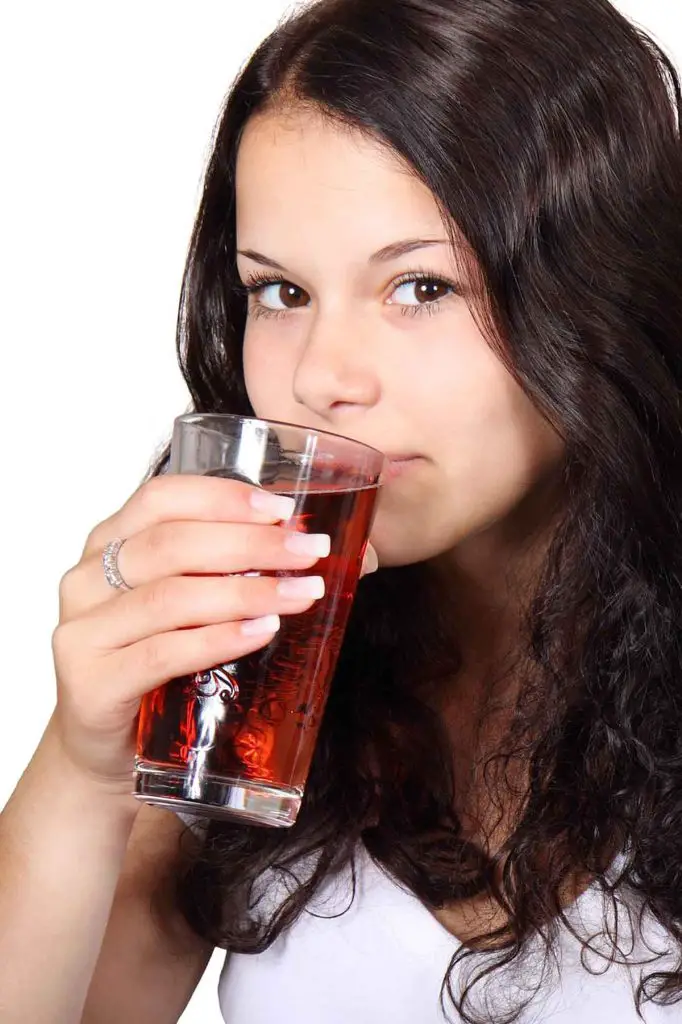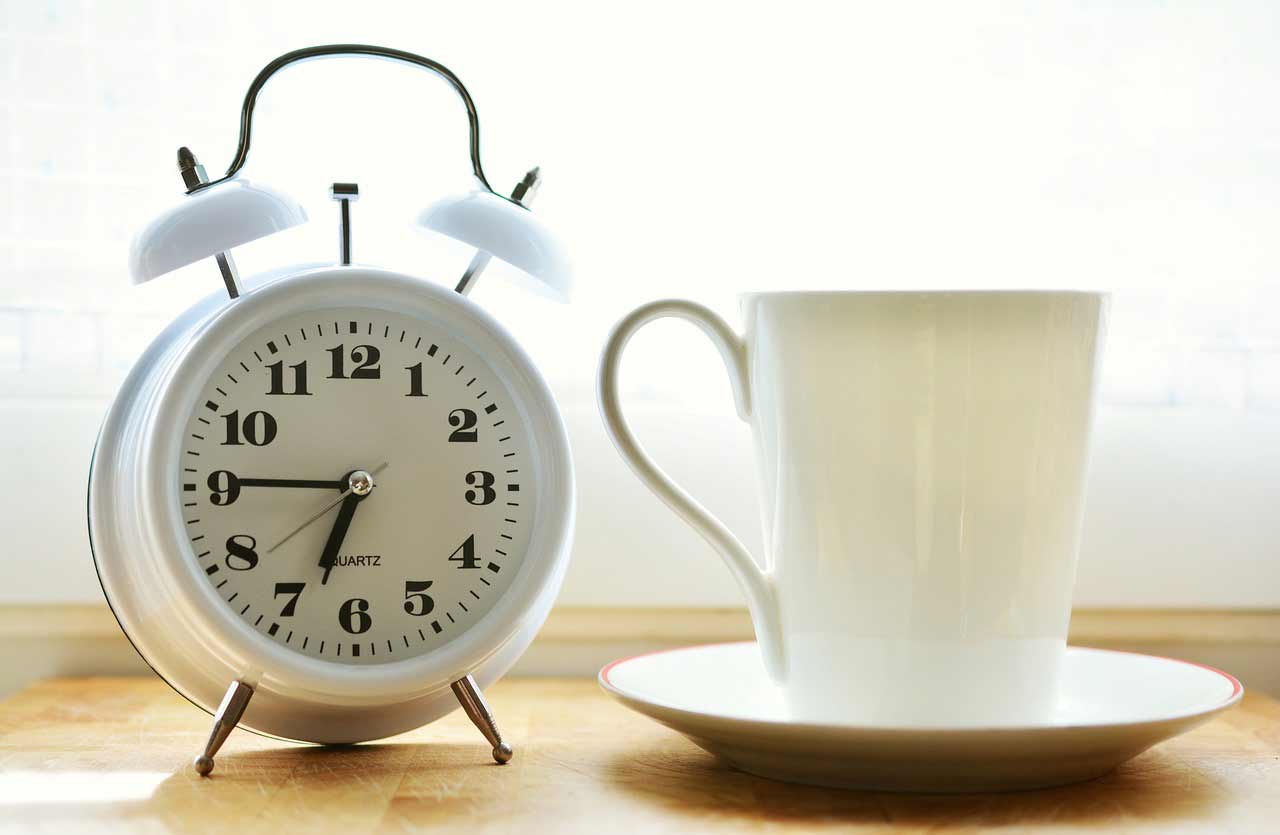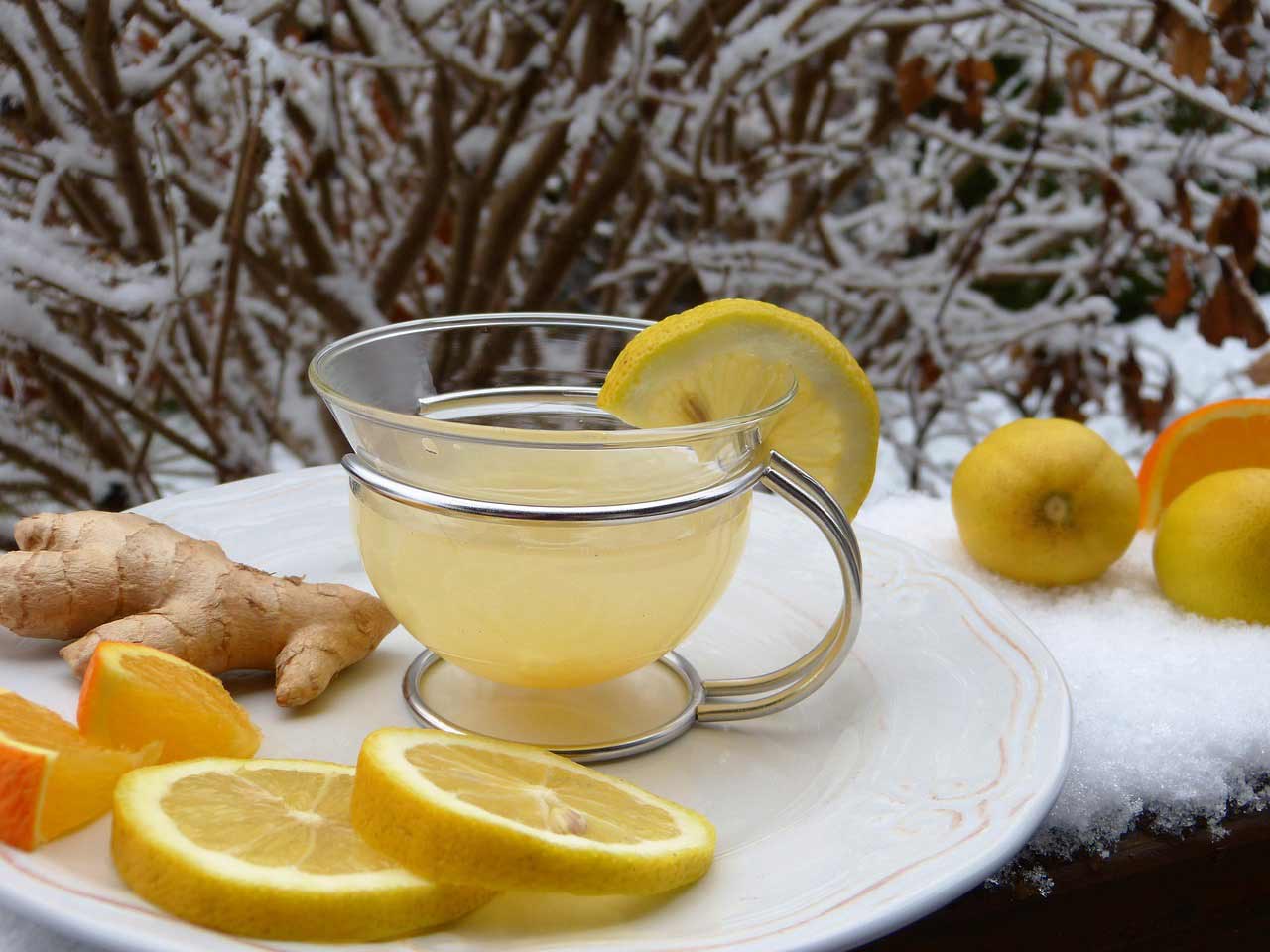Cranberry juice, popular for its bright color and tangy taste, is more than just a refreshing beverage. It is a potent force for good, full of minerals and antioxidants that offer a host of health benefits. This juice is made from cranberry fruit, which is mostly grown in North America and has long been a staple of modern diets and conventional treatment.
The unique bioactive ingredients of cranberry juice, such as various phytonutrients, vitamin C, and vitamin E, set it apart. Its health-promoting properties are mostly attributed to these ingredients.
Cranberries are rich in proanthocyanidins (PACs), a specific kind of antioxidant that is particularly helpful in lowering urinary tract infections (UTIs). These PACs act as a natural defense against recurrent infections by preventing bacteria from adhering to the walls of the urinary tract.
Cranberry juice is well known for its capacity to strengthen heart health in addition to its potential to prevent UTIs. Cranberry antioxidants can reduce the risk of chronic diseases by combating inflammation and oxidative stress, two primary causes of heart disease.
Regular use of cranberry juice has been shown in studies to increase blood pressure, decrease triglycerides, and enhance vascular health in general.
Furthermore, the juice is a fantastic choice for anybody attempting to maintain a balanced diet due to its high fiber content and low salt content. Cranberry juice is evidence that sometimes the best remedies come from nature, whether they help the digestive system, prevent infections, or promote heart health.
Analyzing the journey of cranberry juice from bog to bottle shows that this tart beverage is more than simply a Christmas favorite—it’s a year-round wellness elixir.

Understanding Cramps: Causes and Common Remedies
Cramping can disrupt our everyday lives, causing pain and discomfort that can range from minor irritation to serious interference with activities. It raises the question: Is cranberry juice effective in relieving cramps? To address this, let’s examine the common causes of cramps as well as their cures, including the possibility that cranberry juice might help.
Involuntary muscular spasms, or cramps, can happen anywhere in the body. They are frequently caused by overusing muscles, dehydration, mineral deficiencies, or a woman’s menstrual cycle. Stretching exercises, drinking lots of water, and eating meals high in minerals (including calcium, magnesium, and potassium) are common treatments for cramps.
However, how does cranberry juice come into this scheme of things?
Natural cures have been the topic of conversation lately, with many asking whether cranberry juice might work well for cramps. Because cranberry juice is high in antioxidants, vitamins, and minerals, it may be able to assist the body in rehydrating and replenishing vital nutrients, which may help prevent or relieve muscular cramps.
Cranberry juice is a beverage worth exploring, even though research on its specific advantages for cramping is still in its early stages. Drinking liquids like cranberry juice can help maintain hydration levels, which is important in preventing muscular cramps.
Furthermore, the vitamins and minerals in cranberry juice may help maintain the body’s electrolyte balance, which is essential for healthy muscular performance.
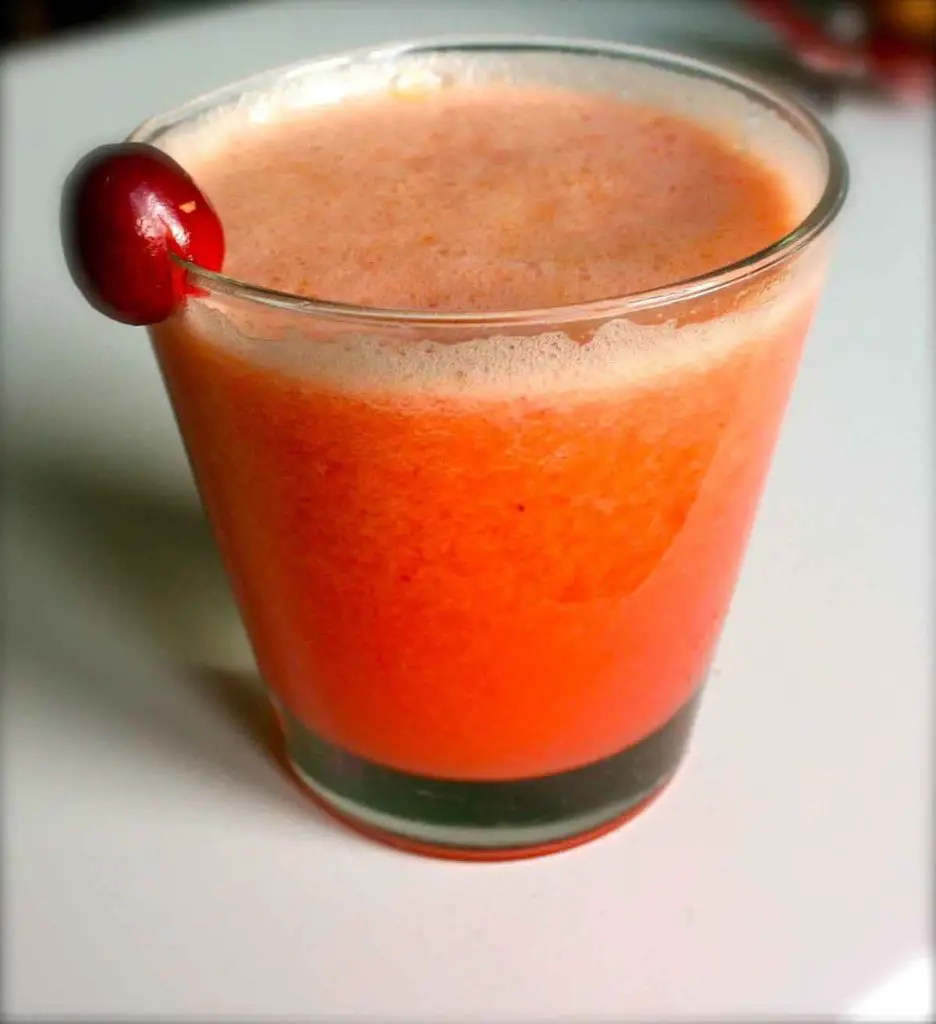
Nutritional Profile of Cranberry Juice
Cranberry juice is a mainstay in diets for those who are health-conscious because of its distinctive combination of vitamins, minerals, and antioxidants. This colorful juice’s primary health advantages come from its abundance of phytonutrients, which include flavonoids, anthocyanins, and proanthocyanidins, as well as vitamins C and E. These elements are essential for preserving general health as well as muscular function and recovery.
“Is cranberry juice good for cramps?” one may think. Cranberry juice may provide comfort because of its nutritional powerhouse. For example, the antioxidants’ anti-inflammatory qualities can help reduce cramping’s accompanying swelling and discomfort, while minerals like potassium and magnesium promote healthy neuron activity and muscle relaxation.
Furthermore, cranberry juice’s hydration factor—especially in its less concentrated form—can help avoid muscular cramps by keeping the body properly hydrated.
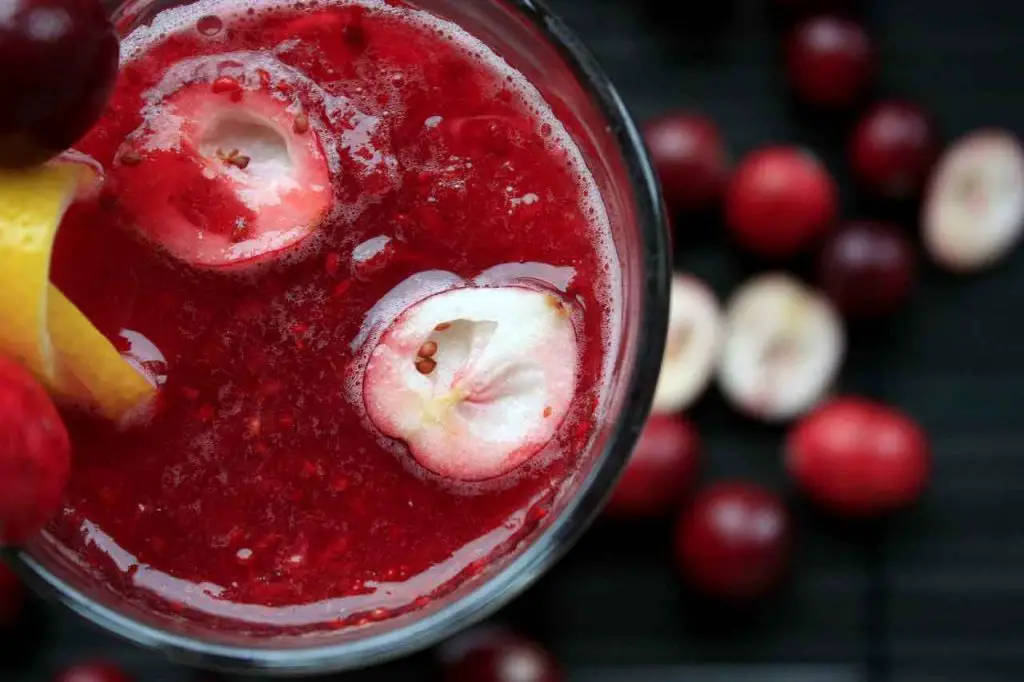
Types of Cramps That May Benefit from Cranberry Juice
While cramps can be extremely painful and interfere with many parts of daily life, there are natural therapies that can help ease the agony. Cranberry juice is one such over-the-counter treatment that has gained appeal. “Is cranberry juice good for cramps?” is a common question.
Through our study, we look at the potential benefits of this sour drink for different kinds of cramps.
Cramping in the muscles
Muscle cramps are characterized by acute, uncontrollable pain in one or more muscles. These cramps can affect any muscle group, making it difficult to exercise, sleep, or even perform daily duties. Cranberry juice is a fantastic alternative for cramps of this kind because of its anti-inflammatory and electrolyte qualities, which may provide calming relief for these muscular spasms.
Menstrual cramps
People who have menstrual cramps may get relief from them by incorporating them into their diet. The severity of dysmenorrhea and menstrual cramps can vary greatly, which can significantly lower someone’s quality of life.
Cranberry juice may be useful in alleviating menstrual cramps because of its anti-inflammatory and pro-urinary tract qualities, which may also aid in alleviating menstrual cycles.
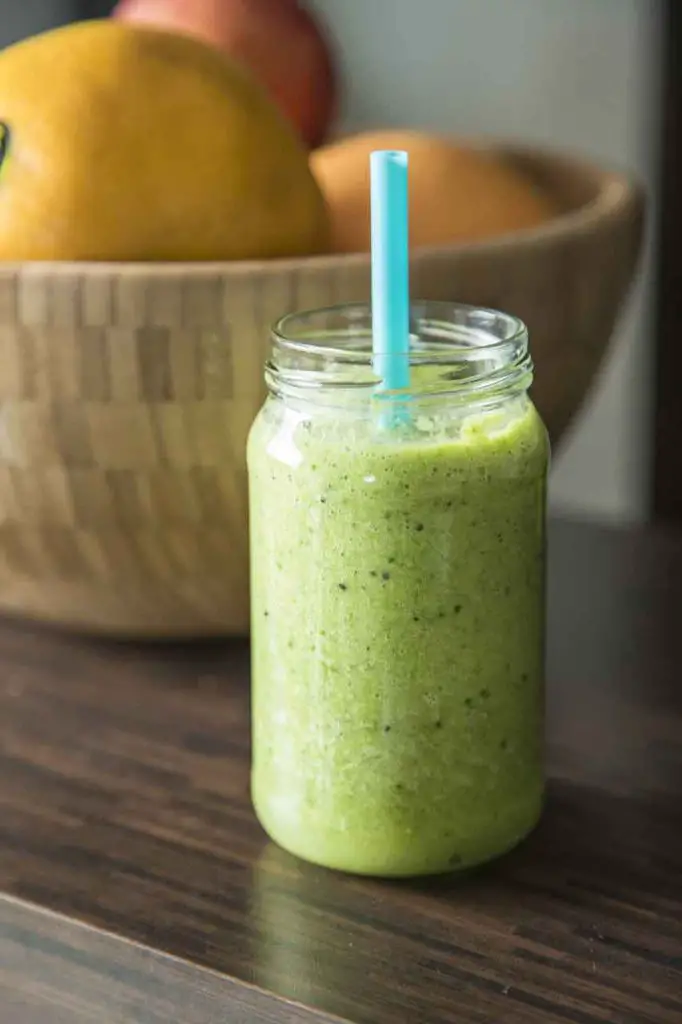
Stomach cramps
Digestion problems can frequently lead to severe and uncomfortable side effects, such as stomach discomfort. Because of its high fiber and antioxidant content, cranberry juice can help relieve severe stomach cramps.
This supports the theory that cranberry juice relieves cramps caused by digestive issues and suggests including cranberry juice in your diet to help control discomfort in the stomach.
Precautions and Side Effects
If cranberry juice helps with cramps, it’s crucial to weigh the risks and side effects of the treatment in a balanced manner. Renowned for its tart taste and health benefits, cranberry juice can help ease a range of cramps, such as slight sprains of the muscles and menstrual cramps.
However, it’s important to approach its consumption with caution and information.
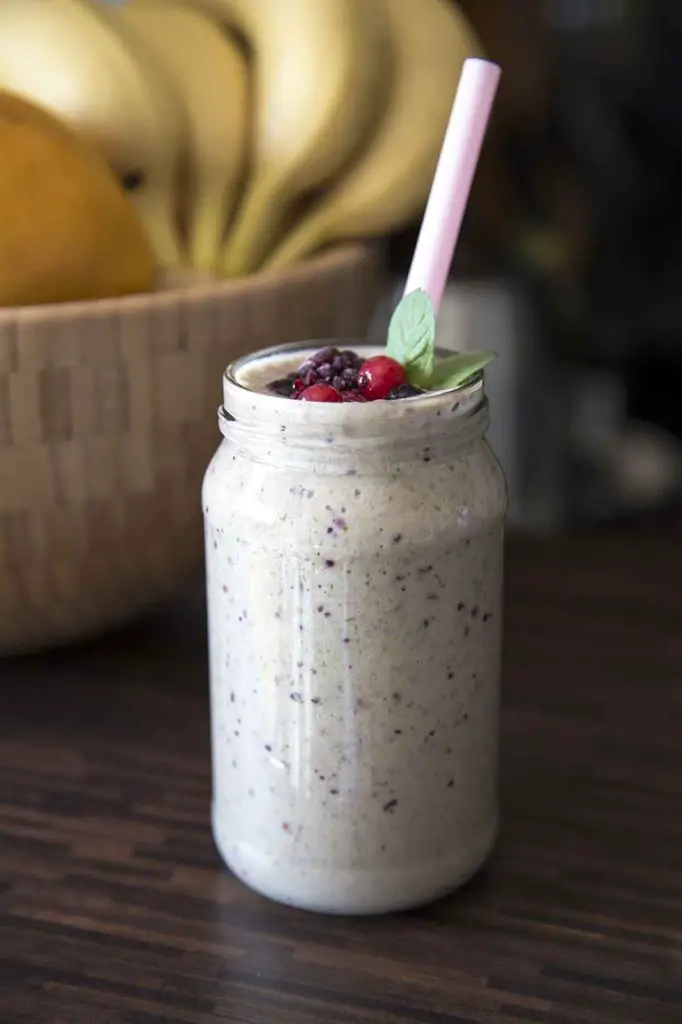
Before anything else, if people are wondering if cranberry juice relieves cramps, it’s important to understand that while too much of it can help, too much of it can also lead to stomach issues. This is because the high acidity of cranberry juice, especially in large doses, might upset the stomachs of certain individuals.
Those who have a history of kidney stones also need to exercise further caution. Cranberries contain oxalates, which may contribute to kidney stones in certain people. See your doctor before taking extra cranberry juice to relieve cramps if you have a history of this problem.
Another thing to consider is how cranberry juice may interact with particular medications. If you’re wondering if cranberry juice relieves cramps, be aware that it might increase your risk of bleeding and interfere with blood thinners like warfarin. Consult your doctor before including cranberry juice in your regimen, particularly if you’re on any medications.
If you have cramps, it’s also best to use unsweetened cranberry juice instead of sweetened ones. Many cranberry juice products on the market are made from mixtures with added sugars, which, if consumed in excess, can cause weight gain and other health issues, in addition to negating any potential health benefits.
The Science Behind Cranberry Juice and Muscle Cramps
Muscle cramps may be a real annoyance, regardless of whether they happen during physical activity or in the middle of the night. These unbearably excruciating muscle spasms can affect both athletes and idle people. Among the various remedies and safety measures, one question that frequently arises is: Is cranberry juice good for cramps? This article examines the scientific hypotheses that might help cranberry juice function as a helpful remedy for this troublesome condition.
Muscle cramps are often the body’s way of telling you when there are deficiencies in water, electrolytes, or energy. Cranberry juice has a strong nutritional profile, which makes it a viable option to explore as a potential treatment. Cranberries are a great source of vitamins, minerals, and antioxidants that are necessary for maintaining electrolyte balance and muscular mass.

Firstly, we cannot overstate the importance of nutrients like potassium and magnesium in cranberry juice. These components are essential for muscle health and proper operation. They facilitate the nerve signals that regulate muscular contraction and relaxation.
Unwanted muscle spasms or cramps may be the result of a dietary imbalance or deficiency. Cranberry juice has the potential to decrease the frequency and intensity of muscular cramps by aiding the body’s natural replenishment of these vital minerals.
An additional issue to consider is the hydration factor. Dehydration is known to cause muscle cramps, particularly in athletes and other physically demanding individuals. Cranberry juice, as a fluid, aids in the body’s overall hydration, keeping muscles lubricated and reducing the likelihood of cramping.
The natural sugars in cranberry juice can also deliver a quick energy boost, enhancing muscle endurance and preventing fatigue-induced cramping.
The antioxidant properties of cranberries may aid in maintaining electrolyte balance, hydration, and preventing muscle cramps. Antioxidants help prevent oxidative stress, which raises the risk of chronic diseases and can exacerbate cramps by tightening and inflaming muscles.
Because cranberry juice contains a high concentration of antioxidants, it may be able to reduce cramps by lowering inflammation and oxidative damage to muscle tissue.
Although the answer to the question “Is cranberry juice good for cramps?” appears straightforward, it’s important to treat cramps with objectivity. Not all cramps are the same, and what alleviates one person’s discomfort may not alleviate another’s.
Furthermore, not everyone should consume cranberry juice due to its high acidity, especially if they have sensitive stomachs or urinary tract issues.
Note: The content offered is unique and was produced using basic nutrition information, muscle cramping, and cranberry juice’s possible advantages. It relies on generally recognized concepts in nutrition and health sciences rather than citing particular research or publications. I suggest looking for specific research, statistics, or more in-depth information in academic publications, on reliable health websites, or by speaking with a medical expert. For research on subjects similar to this, websites such as PubMed, WebMD, or the National Institutes of Health (NIH) are great places to start.
How to Use Cranberry Juice for Cramps
Cramps are a real inconvenience in daily life since they can make it hard to relax, work, or sleep. Among the numerous alternative natural remedies that have been suggested, one often-asked question is whether cranberry juice works for cramps. This article aims to clarify the potential benefits of cranberry juice and provide tips for incorporating it into your daily routine to alleviate cramps.
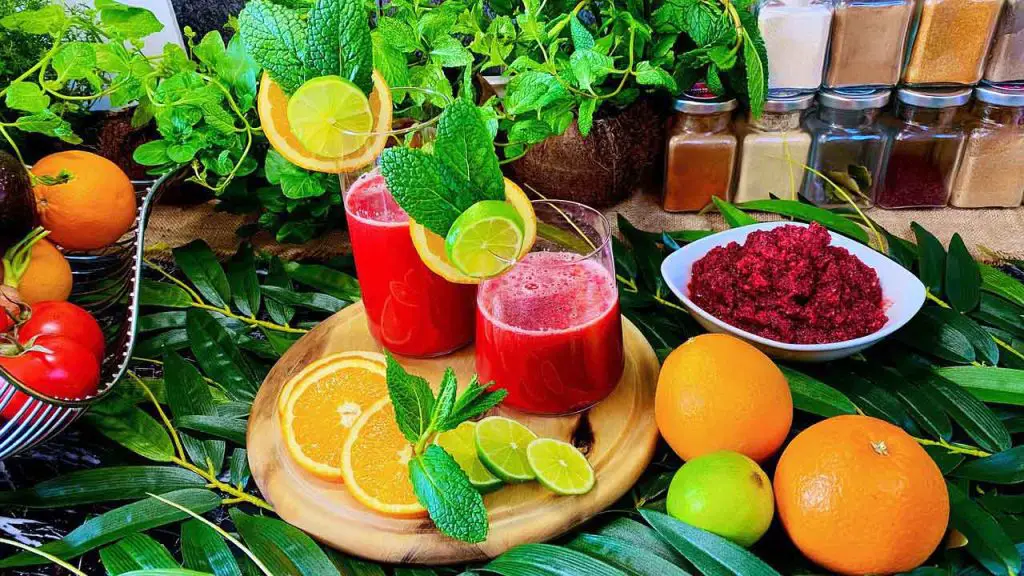
Cranberry Juice for Cramps: An Overview
Cranberry juice is a potent beverage with a variety of health benefits because cranberries are rich in vitamins, minerals, and antioxidants.
However, the pertinent question remains: Can cranberry juice relieve cramps? This holds true for muscle cramping and menstruation. A scientific study suggests that the nutrients in cranberry juice may help with muscle relaxation and pain reduction, which makes it a good natural cramp cure.
Cranberry Juice’s Beneficial Applications for Cramps
To ensure that cranberry juice relieves cramps effectively, examine the following helpful suggestions:
1. Quality over quantity: opt for organic, unsweetened cranberry juice to avoid consuming excessive amounts of sugar, which can exacerbate cramps. A glass of cranberry juice per day might be a good place to start.
2. Hydration is Key: Drinking plenty of water and cranberry juice is a great way to stay hydrated. Drinking enough water is critical for preventing cramps because it promotes healthy muscle function and reduces bloating.
3. Timing is Crucial: Drinking cranberry juice as soon as you feel cramps can help you better control them. Consider including cranberry juice in your normal diet as a preventive measure, since consistency is also very important.

Table: Cranberry Juice Intake Guide for Cramps
| Time of Day | Suggested Intake | Notes |
|---|---|---|
| Morning | 1 glass mixed with water | Kickstart hydration and pain relief |
| Afternoon | 1 glass (if cramps persist) | Can help ease afternoon fatigue and cramps |
| Evening | 1 glass before bed | Aids in muscle relaxation and can improve sleep quality |
Precautions and Considerations
Looking for information about the response to the query, “Is cranberry juice good for cramps?” Despite its advantages, it’s crucial to remember that cranberry juice shouldn’t replace professional medical advice or prescription medications.
Always see a doctor, especially if you are expecting a child or have underlying medical conditions.
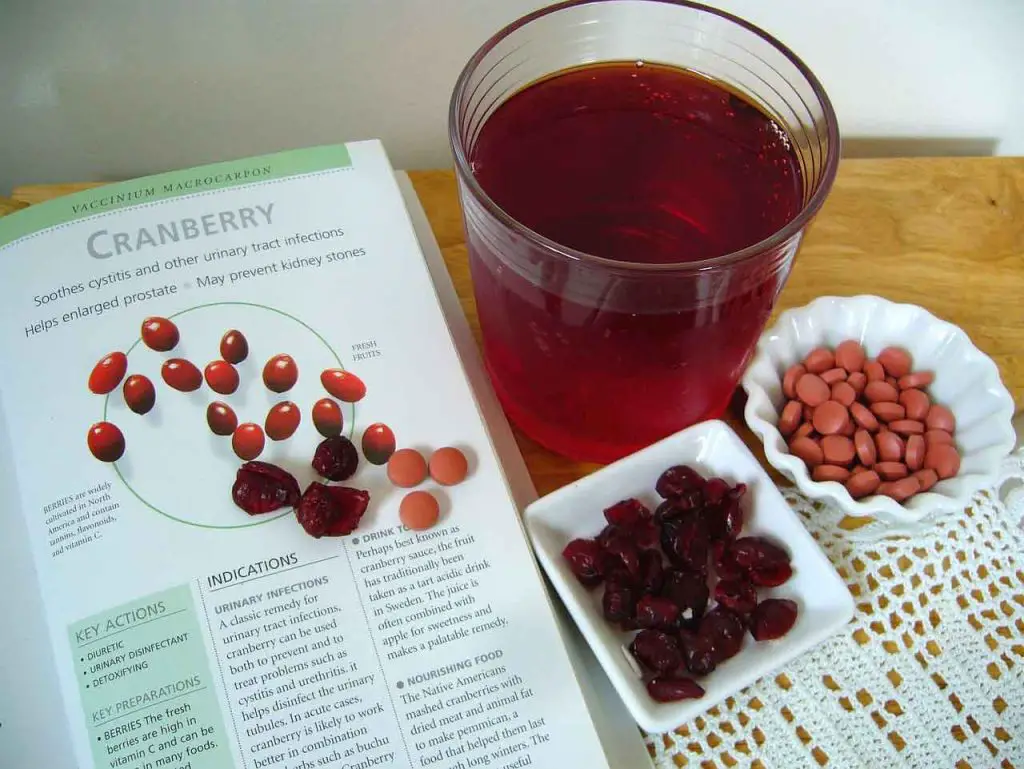

Je m’appelle Gunther Adam et je suis ravi de partager avec vous le monde des saveurs vibrantes, de la vie saine et de l’art du goût. Learn More

